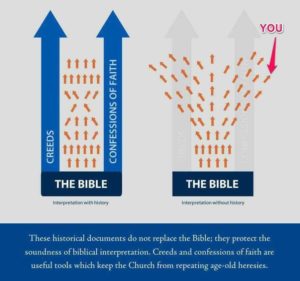Dr. Joel Beeke:
Men and Pornography
A Teaching Resource on the Cross
 Mike Riccardi has served on staff at Grace Community Church since 2010. He currently serves as the Pastor of Local Outreach Ministries, which includes overseeing Fundamentals of the Faith classes, six foreign language outreach Bible studies, and evangelism in nearby jails, rehab centers, and in the local neighborhood. Mike earned his B.A. in Italian and his M.Ed. in Foreign Language from Rutgers University, and his M.Div. and Th.M. from The Master’s Seminary. He also has the privilege of serving alongside Phil Johnson as co-pastor of GraceLife, a Sunday morning adult fellowship group at Grace Church.
Mike Riccardi has served on staff at Grace Community Church since 2010. He currently serves as the Pastor of Local Outreach Ministries, which includes overseeing Fundamentals of the Faith classes, six foreign language outreach Bible studies, and evangelism in nearby jails, rehab centers, and in the local neighborhood. Mike earned his B.A. in Italian and his M.Ed. in Foreign Language from Rutgers University, and his M.Div. and Th.M. from The Master’s Seminary. He also has the privilege of serving alongside Phil Johnson as co-pastor of GraceLife, a Sunday morning adult fellowship group at Grace Church.
(1) What Really Happened on the Cross? Part 1 (mp3) here.
(2) What Really Happened on the Cross? Part 2 ((mp3) here.
(3) Invincible Atonement, mp3 teaching and includes a pdf resource file at this link.
Also, Pastor Mike taught a detailed study at this year’s Shepherd’s Conference on the theme of “He Emptied Himself: A Study of the Kenosis of Christ.” (found here)
The Armor: A Guided Tour
The Sword of the Spirit
Head Coverings Re-Examined
 Dr. Sam Storms writes:
Dr. Sam Storms writes:
One of the more important books released in 2017 is Andy Naselli’s, How to Understand and Apply the New Testament: Twelve Steps from Exegesis to Theology (Presbyterian & Reformed). What follows is one example of why I so greatly appreciate Andy’s book.
In his chapter on the role in interpretation of the historical and cultural context of a biblical passage, Andy addresses the problem of 1 Corinthians 11:2-16 and its description of women wearing head coverings or veils while engaged in public worship. Should women do so today? Some say Yes, but most say No. Andy appeals to the research of Bruce Winter to help us in the process. Here is what he says:
What does it mean for a wife or woman to cover her head? What did that communicate in the Greco-Roman culture of Paul’s day? If you can’t answer those questions, then I don’t think you can accurately understand this passage.
This is a very controversial text on several levels. The most helpful insights I have read are by Bruce Winter, a historian and New Testament scholar who is an expert on the first-century historical-cultural context of Christianity in the Greco-Roman world. He has focused on 1 Corinthians for about three decades, and I’m not aware of anyone who has probed as penetratingly into that letter’s historical-cultural context. Here’s basically what Winter argues:
1. During religious ceremonies, pagan Roman men with a high social status pulled their togas over their heads when they led by praying or offering sacrifices. So Paul commanded Christian men not to cover their heads during their times of corporate worship like the socially elite pagans did.
2. A woman’s covering her head socially indicated that she was married. The thin head scarf or head covering symbolized a married woman’s modesty and chastity and submission to her husband. It was one way in which a wife honored her husband. The Greek word gune can mean “woman” or “wife,” depending on the context, and in this passage it refers specifically to the wife in vv. 3, 5, 6, 10, and 13. (The ESV translates it as “wife” in those verses, unlike the NIV, which translates it “woman.”)
3. A new kind of wife was emerging at this time in the Roman world – one who rebelled against the cultural milieu that allowed husbands but not wives to be sexually promiscuous. One way in which such wives would flaunt that freedom was by removing their veils. So a Christian wife should not deliberately remove her veil while praying or prophesying during a time of corporate worship because that would contentiously identify her with these other promiscuous women.
Not everyone agrees with Winter on this, but I think that he has made the most persuasive case based on the historical-cultural context. Regardless of whether you agree with Winter, my point is that you must engage the historical-cultural context of this passage in order to accurately interpret and apply it.
If Naselli, following Winter, is correct in the way he interprets this passage (and I believe he is), then we need not conclude that Paul is mandating for every culture in every century that women pray, prophesy, and worship with their heads covered. Needless to say, what the head-covering meant for women in first-century Corinth is not what it would mean or communicate today.
[Naselli provides the bibliographical information where you can study this issue more extensively: Bruce W. Winter, “Veiled Men and Wives and Christian Contentiousness (1 Corinthians 11:2–16),” in After Paul Left Corinth: The Influence of Secular Ethics and Social Change (Grand Rapids: Eerdmans, 2001), 121–41; Winter, “The Appearance of Unveiled Wives in 1 Corinthians 11:2–16,” in Roman Wives, Roman Widows: The Appearance of New Women and the Pauline Communities (Grand Rapids: Eerdmans, 2003), 77–96. See also Wayne Grudem, “Egalitarian Claim 9.2: Head Coverings,” in Evangelical Feminism and Biblical Truth: An Analysis of More Than One Hundred Disputed Questions (Wheaton, IL: Crossway, 2004), 332–39.]
The Doctrine of Scripture Series
Pastor Kevin DeYoung, University Reformed Church, East Lansing, Michigan
Jesus’ View of Scripture:
Jesus held Scripture in the highest possible esteem. He knew his Bible intimately and loved it deeply. He often spoke with language of Scripture. He easily alluded to Scripture. And in his moments of greatest trial and weakness—like being tempted by the devil or being killed on a cross—he quoted Scripture.
His mission was to fulfill Scripture, and his teaching always upheld Scripture.
He never disrespected, never disregarded, never disagreed with a single text of Scripture.
He affirmed every bit of law, prophecy, narrative, and poetry. He shuddered to think of anyone anywhere violating, ignoring, or rejecting Scripture.
Jesus believed in the inspiration of Scripture, down to the sentences, to the phrases, to the words, to the smallest letter, to the tiniest mark.
He accepted the chronology, the miracles, and the authorial ascriptions as giving the straightforward facts of history.
He believed in keeping the spirit of the law without ever minimizing the letter of the law. He affirmed the human authorship of Scripture while at the same time bearing witness to the ultimate divine authorship of the Scriptures.
He treated the Bible as a necessary word, a sufficient word, a clear word, and the final word.
It was never acceptable in his mind to contradict Scripture or stand above Scripture.
He believed the Bible was all true, all edifying, all important, and all about him. He believed absolutely that the Bible was from God and was absolutely free from error. What Scripture says God says, and what God said was recorded infallibly in Scripture.
Jesus submitted his will to the Scriptures, committed his brain to study the Scriptures, and humbled his heart to obey the Scriptures.
In summary, it is impossible to revere the Scriptures more deeply or affirm them more completely than Jesus did. The Lord Jesus, God’s Son and our Savior, believed his Bible was the word of God down to the tiniest speck and that nothing in all those specks and in all those books in his Bible could ever be broken.
(1) How to Think and Feel About the Word of God – Psalm 119:1-119:176
How to Think and Feel About the Word of God from URC Web on Vimeo.
(2) Something More Sure – 2 Peter 1:16-1:21
Something More Sure from URC Web on Vimeo.
Ancient Christian Creeds
 Article: John Gill, the rule of faith and baptist catholicity by David Rathel (original source here)
Article: John Gill, the rule of faith and baptist catholicity by David Rathel (original source here)
BAPTIST CATHOLICITY AND BAPTIST HISTORY
I recently read a Baptist theologian bemoan the fact that every systematic theology he read by a Baptist author featured no serious engagement with the great tradition. This theologian further stated that every lecture he attended while a student at a Baptist seminary was similarly deficient. I cannot speak for his experience, but I suspect he is not the first person to make such claims. Baptists are not exactly known for their catholicity.
One can fortunately find in the history of our movement examples to the contrary. The Orthodox Creed used by the General Baptists commended the Apostles’ Creed as well as the Athanasian Creed, and numerous Baptist doctrinal statements have employed the Trinitarian grammar provided by the Patristic Era. The church covenant still in use at the New Road Baptist Church in Oxford, England, reads, “We denominate ourselves a Protestant Catholic Church of Christ.”
As we explore how some of our Baptist forefathers appropriated the historic tradition, I believe that the works of John Gill, an eighteenth-century Particular Baptist minister, deserve more conversation than they presently receive. His writings display a surprising degree of interest in the larger Christian tradition. His use of the tradition serves as yet another instance of a spirit of catholicity present in the history of the Baptist movement to which contemporary advocates of Baptist catholicity can point. I offer here but one example from Gill’s work—his use of the rule of faith—to demonstrate this fact.
JOHN GILL AND THE RULE OF FAITH
Gill begins his systematic theology with a defense of the need to give an orderly account of theology, acknowledging that what he entitles “systematical divinity” has become unpopular during his lifetime. To offer a justification for such a project, he relies primarily on biblical texts that appear to present Christian convictions in an organized fashion—he highlights in particular Heb. 6:1–2—and references such works as the Apostles’ Creed, Tertullian’s use of the rule of faith, Origen’s On First Principles, and Clement of Alexandria’s Stromata as examples of earlier attempts to present Christian belief in an arranged manner. The tradition, he believes, serves to legitimize the task of systematizing theology by providing numerous historical precedents.
It is Gill’s reference to Tertullian’s use of the rule of faith—the regula fidei or the analogy of faith—that merits closer examination. He makes a significant digression at its mention. Gill explains the rule of faith is not the “sacred writings” though it is “perfectly agreeable to them;” it is “articles and heads of faith, or a summary of gospel truths” that one may collect from Scripture. He believes that texts such as Rom 8:30—one that contains a “rich summary and glorious compendium and chain of gospel truths”—and 1 Tim 1:16 give it legitimacy. In his judgment, they present or at least allude to an organized body of Christian teaching.
Gill believes that Tertullian’s paraphrase of the Apostles’ Creed offers a helpful summary of the content of the rule of faith. While not making the rule of faith and Tertullian’s paraphrase synonymous, he does connect the two closely together when he writes that “such a set of principles these [i.e., the Creed], as, or what are similar to them and accord with the word of God, may be called the analogy of faith.” After quoting the Creed in full as it is presented in Tertullian’s On the Veiling of Virgins, he explains that, though the Creed was not authored by the apostles themselves, it was “agreeable to their doctrine, and therefore called theirs.” It was “received, embraced, and professed very early in the Christian church.” Continue reading
Apostolic Examples of Dialogue
 Here are some words from Dr. James White. This is an edited excerpt from a longer discussion on facebook defending the idea of having dialogue, even with those opposed to the gospel:
Here are some words from Dr. James White. This is an edited excerpt from a longer discussion on facebook defending the idea of having dialogue, even with those opposed to the gospel:
Let’s consider some relevant texts.
Acts 17:17 So he reasoned in the synagogue with the Jews and the devout persons, and in the marketplace every day with those who happened to be there.
So Paul’s “reasoning” (διελέγετο) took place in different locations (synagogue, market place). When he reasoned with Jews, do you think he refused to let them state their views? How about the devout persons (God-fearers)? And in the marketplace “with those who happened to be there,” do you think Paul listened to them, or just said, “No, sorry, I will not hear what you have to say—I am only here to tell you what to do!”? That hardly fits the meaning of “reasoning” does it? Can we agree there would have to be give and take? And do you think there were people of many religious faiths in the marketplace? The next verse specifically mentions Epicureans and Stoics, so that marketplace was a veritable smorgasbord of religious and philosophical views. And Paul reasoned with them. He didn’t tell them to shut up and just listen, he reasoned with them. That involves allowing them to state their views, explain their position, interact.
… most people do not like it when you simply come in and say, “Hey everyone, I know the truth, you don’t, shut up and listen.” I’ve found the truth of the gospel shines the most brightly against the backdrop of error, so having the opportunity of hearing someone out and then saying, “OK, I understand your views, but let me respond now” is a great thing. Happens every day, all over.
“And he was reasoning in the synagogue every Sabbath and trying to persuade Jews and Greeks.” (Acts 18:4)
Here we have the conjunction of two terms, “reasoning” and “persuading.” … both individually, and even more so together, refer to a give and take process, a dialogue, a discussion.
I am sure the Jews would raise texts of Scripture in opposition to Paul. He did not simply walk away, he interacted, listened, responded. Persuasion absolutely demands interaction.
“And he entered the synagogue and for three months spoke boldly, reasoning and persuading them about the kingdom of God. But when some became stubborn and continued in unbelief, speaking evil of the Way before the congregation, he withdrew from them and took the disciples with him, reasoning daily in the hall of Tyrannus.”
(Acts 19:8–9)
This idea of dialogue, reasoning, seemed to be common place for the Apostle Paul, whether it was in the synagogue or, upon expulsion therefrom, a “worldly” location. And again, once outside the synagogue, the breadth of viewpoints would expand greatly, and yet Paul is still “reasoning.” And note the disciples are present, hence, the reasoning with unbelievers (including believers with pre-existing faith structures) is done in their presence.
This is, in fact, part of the means of training and teaching for the Apostle. No hiding the new disciples from those who would challenge their new found faith. The Gospel is sufficient.
So here are a few texts that give apostolic example.
The Cascade Argument
 -TurretinFan
-TurretinFan
(original source here)
Dr. Michael Brown and Dr. Sam Waldron had a very cordial debate on the question, “Have the New Testament Charismatic Gifts Ceased?” Dr. Brown’s rebuttal arguments did not appear to me to reflect an understanding of Dr. Waldron’s primary argument, the so-called Cascade Argument.
I strongly believe that it is important to a dialog that both sides understand the other. Thus, my hope is that by spelling out this argument in writing, I can clarify the argument to Dr. Brown, to those who agree with him, and more broadly to those considering the question of the gifts.
The Cascade Argument can be summarized thus:
1) There are no apostles of Christ on earth today.
2) Because there are no apostles of Christ, there are no prophets.
3) Because there are no prophets, there are no tonguespeakers.
4) In view of 1-3, there are no miracle workers on earth today.
1. There are No Apostles of Christ on Earth Today
A) To be an Apostle of Christ was itself a gift to the church, and the foremost of the gifts. 1 Corinthians 12:28-31 Ephesians 4:8-11 – Christ gave gifts to men, among them apostles.
B) The term “apostles of Christ” is to be distinguished from missionaries, aka “apostles of the churches,” which is a different office. Only “apostles of Christ” are no longer among us.
C) To be an apostle of Christ, there were three distinguishing marks:
i) Directly appointed by Christ (Mark 3, Luke 6, Acts 1:2, Acts 10:41, Galatians 1:1). That’s why the lot was used.
ii) Physical eyewitnesses of the Resurrected Jesus (Acts 1:22, Acts 10:39, 1 Corinthians 9:1)
iii) They are able to confirm their apostlate by doing miracles (2 Corinthians 12:12).
D) The apostles of Christ spoke authoritatively for Jesus Christ (1 Corinthians 14:37).
E) There are five reasons we know from Scripture that the Apostlate ceased:
i) Ephesians 2:20 The church is built on the foundation of the apostles and prophets, which alludes to Revelation 21:14. The analogy implies that the apostles and prophets were confined to the foundational period of church history.
ii) 1 Corinthians 15:8 Paul “last of all” was the last one to see the risen Christ. And since being a physical eyewitness to the risen Christ is one of the marks of an apostle, Paul is the last apostle.
iii) 1 Corinthians 12:31 and 14:1 indicate that Christians cannot seek the gift of Apostle of Christ – the greatest gift they could seek was prophecy, even though apostleship was identified as a gift.
iv) Galatians 2:7-9 Paul received the right hand of fellowship from the 12 apostles, but no one can today.
v) Ephesians 2:20 This passage describes the form of the New Testament as “apostles and prophets.” If there were apostles and prophets today, the canon would be open, as those apostles/prophets continued to speak authoritatively. But Charismatics (nearly all) recognize that the canon is closed, therefore they ought to recognize that the apostlate is also closed.
F. Apostolic Gift is Linked to Impartation of Other Gifts (Acts 8)
This suggests the cessation of the miraculous gifts.
2. There are No Prophets Today
A) The cessation of the apostolate creates the presumption or at least possibility of cessation of other gifts.
B) NT Prophets like the Apostles were foundational to the New Testament church. (Ephesians 2:20)
C) Definition of Prophet in Deuteronomy 13 & 18 was never rescinded, and this requires infallibility.
D) Just as the OT’s authority is summarized as “the prophetic word” (2 Peter 1:19-21) and its form is also described in about a dozen NT references to “the law and the prophets” or “Moses and the prophets”, so also the NT’s canon is summarized in Ephesians 2:20 as “apostles and prophets” (the prophets in question are NT prophets as seen in Ephesians 3:5; 4:11 and 1 Corinthians 12:28).
3. There are No Tongue-Speakers Today because Tongues was a form of prophecy.
A) Acts 2 tongue speaking is explained by reference to Joel 2, where it is described as prophecy.
B) 1 Corinthians 14:5 asserts the equivalence of the two gifts, if tongues is interpreted.
C) In both tongues and prophecy, the speaker is uttering mysteries, which refers to prophetic revelation (1 Corinthians 13:2, Revelation 1:3, 1:20, and 10:7).
4. There are No Miracle-Workers Today
There may be miracles today, but there is a difference between miracles and miracle workers.
The Cascade Argument was augmented by a dilemma as to the first point: if they accept the point, then they are at least cessationists in some form, since the first and greatest gift no longer exists; whereas if charismatics want to assert that there are living apostles of Christ today, then they are denying a clear New Testament teaching. Additionally, if such apostles exist today, then they have the same authority/infallibility that the original apostles had.
